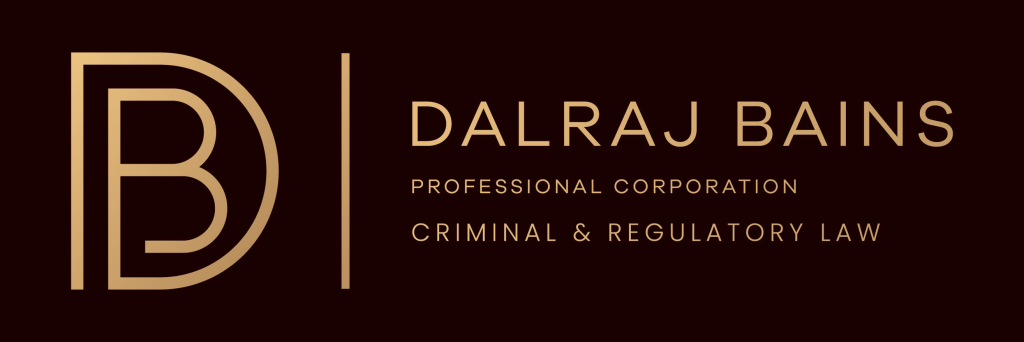Failure to comply refers to a category of offences under the Criminal Code of Canada where an individual
intentionally or without lawful excuse violates the conditions of a Court order, such as those imposed
through bail, probation, undertakings, recognizances, or other judicial directives. These offences are
considered serious because they undermine the administration of justice by disregarding court authority.
Key Provisions in the Criminal Code of Canada
Section 145 – Failure to comply with Bail, Undertaking, or Appearance Notice
Covers breaches of conditions related to pre-trial release or Court appearance
obligations:
- Section 145(2): Failing to attend Court as required by a release order, summons, or recognizance, or failing to surrender as ordered.
- Section 145(3): Failing to comply with conditions of an appearance notice, summons, undertaking, or release order. Some examples include violating a curfew, no-contact order, or not meeting reporting requirement.
- Section 145(4): Failing to comply with an undertaking, such as not attending for fingerprinting or identification under the Identification of Criminals Act.
- Section 145(5): Failing to comply with conditions of an appearance notice or summons, including attending Court or for identification purposes.
Section 733.1 – Failure to Comply with a Probation Order
Applies to breaches of probation conditions imposed as part of a sentence. Conditions
may include keeping the peace, reporting to a probation officer, abstaining from
alcohol/drugs, completing counselling, or completing community service.
Section 127 – Disobeying a Court Order
A catch-all provision for failing to comply with any lawful Court order not covered by other
specific sections. This could include publication bans or other judicial directives.
If you require legal assistance for failure to comply or other administration of justice related offences,
please contact us now for a confidential consultation.
Section 145(2) failure to attend or appear is a criminal offence encapsulated in the Criminal Code of
Canada. It occurs when an individual, who is required to attend Court, intentionally or without lawful
excuse fails to appear or attend as required. This applies to individuals released on bail, summons, or
other Court orders mandating their attendance.
Typically, the consequence of failing to appear in Court is the issuance of an arrest warrant by the
presiding Judge or Justice of the Peace. If the missed appearance was for the purpose of providing
photographs and fingerprints, the responsibility for issuing the warrant generally falls to the police.
Depending on the issuance date of the arrest warrant, it may be possible to have it rescinded. In such
circumstances, a defence lawyer may facilitate arrangements for the accused to voluntarily surrender to
the police for processing of the warrant. Voluntary surrender may not mean you will be charged with
failing to appear in Court.
Upon surrendering to the police for failing to appear in Court, the accused will typically be brought to the
Courthouse for a bail hearing. If the police have not added a charge for failing to appear, the accused
may be released under the conditions of their prior release related to the original offence for which they
missed. However, there is a risk that the accused may need to seek bail for the failing to appear in Court
and could potentially lose bail on the underlying offence.
In failure to attend or appear in Court cases, the Crown must substantiate several elements beyond a
reasonable doubt for a conviction. These elements include:
- Obligation to Appear: The accused was legally required to attend Court. This could be through a summons, appearance notice, undertaking, Court order, or recognizance.
- Failure to Attend: The accused did not appear at the specified time and place.
- Intent or Lack of Lawful Excuse: The accused knowingly or recklessly failed to appear without a valid legal excuse.
If you require legal assistance for failure to appear in Court or other administration of justice related
offences, please contact us now for a confidential consultation.
Obstruction of justice is a criminal offence under the Criminal Code of Canada that involves intentionally
interfering with or undermining the administration of justice. This offence encompasses actions that
obstruct, pervert, or defeat the course of justice, such as interfering with law enforcement, judicial
proceedings, or investigations. It is considered a serious offence as it threatens the integrity of the legal
system.
Key Provisions in the Criminal Code of Canada
- Section 139(1): Obstructing JusticeProhibits any act intended to "wilfully attempt in any manner to obstruct, pervert or defeat the course of justice" in a judicial proceeding.
- Section 139(2): Obstructing a Public or Peace OfficerThis covers actions that wilfully obstruct a peace officer or public officer in the execution of their duties.
Related Offences in the Criminal Code of Canada
- Section 131 – PerjuryKnowingly giving false evidence under oath with intent to mislead the Court.
- Section 137 – Fabricating EvidenceCreating or using false evidence to mislead a proceeding.
- Section 423 – IntimidationUsing threats or violence to interfere with justice.
- Section 465(1)(c) – Conspiring to obstruct justiceAn agreement between two or more persons to intentionally obstruct, pervert, or defeat the course of justice.
Elements of the Obstruction of Justice Offence
In obstruction of justice cases, the Crown must substantiate several elements beyond a
reasonable doubt for a conviction. These elements include:
- Wilful Act: The accused intentionally committed an act, or omission, to interfere with the administration of justice.
- Intent to Obstruct: The act was done with the purpose of obstructing, perverting, or defeating the course of justice or a peace officer’s duties.
- Impact on Justice: The act had the potential to affect a judicial proceeding, investigation, or law enforcement duties, even if it did not succeed.
If you require legal assistance for obstruction of justice or other administration of justice related offences,
please contact us now for a confidential consultation.
